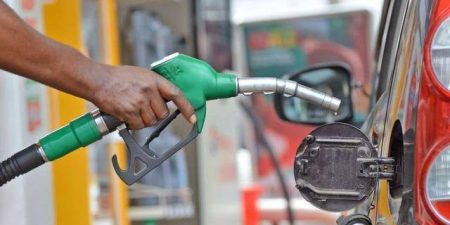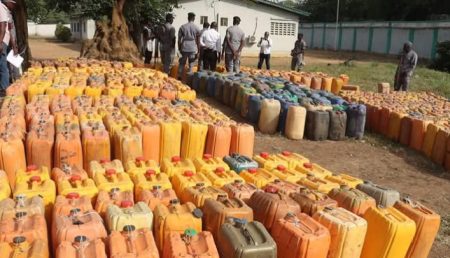
16 April 2017, Lagos – The Executive Secretary, Nigerian Content Development and Monitoring Board, Mr. Simbi Wabote, speaks with OKECHUKWU NNODIM on some developments in the oil and gas industry, including high cost of the nation’s crude compared to other OPEC countries
How do you plan to improve the local content in the oil and gas industry?
When I was appointed, some persons were concerned that the timing was challenging because of the crash in crude oil prices since 2014. Prices only began to recover gradually from November 2016. Within the period of the slump, there have been very minimal industry activities as operators and government were finding it difficult to fund new projects while existing contracts were being renegotiated downwards. Without ongoing and new projects, there hardly can be any Nigerian content. These challenges notwithstanding, I took on this job with the conviction that the low-price regime presents the board and the entire industry with a wonderful opportunity to find ways of doing things differently and better. So, on assumption of duty, I announced that the board would conduct a baseline study on the Nigerian content implementation. This was intended to review how well we implemented the Act in the past six years; where we made progress; and where we needed to up the game. We have kicked off the project with the support of our consultants.
How do you want to get the work of local contractors promoted and showcased?
We have developed a community content guideline, which provides pragmatic steps for incorporating and engaging community contractors as a critical delivery point for Nigerian content development. This guideline was born out of the necessity to boost peace and security in the Niger Delta and address the lingering squabbles between host communities and operating and service companies over participation in oil and gas activities. Sections 25, 26, 27 and 28 (1) & (2) of the Nigerian Content Act provides for the operator to maintain a level of presence in communities where projects are located. The sections also mandate the participation of community entrepreneurs in activities of operations throughout projects life cycle.
As you may recall, President Muhammadu Buhari launched the Petroleum Industry Road map on 27th October 2016 to revitalise the oil and gas industry. A key component of the Petroleum Industry Road map is to deploy 30 per cent of business opportunities from operating companies to communities. The board’s community content guideline sets out strategies to realise this target. We have already aligned our capacity development initiatives to support the delivery of the aspirations encapsulated in the Petroleum Industry Road map.
There are concerns about contracting cycle among industry operators. Are you aware of this and what are you doing about it?
When I assumed office, I took on the lingering issue of protracted contracting cycle in the industry. With support from my team, we have put in place internal performance measures to fast-track the contract processing time from the NCDMB’s end. We have committed to specific timelines for review of Nigerian content plans, technical and commercial evaluation, as well as the issuance of Nigerian content certificates. It is my believe that other agencies involved in the contracting cycle are working on their internal processes so that we can work together to reduce the protracted contracting cycle, which has been identified as the main cause of the high cost of Nigerian crude compared to other OPEC (Organisation of the Petroleum Exporting Countries) nations. It will also help revitalise the tempo of Nigerian content implementation as investors begin to develop more confidence in the Nigerian business environment.
What are some of the projects and programmes being undertaken by your governing council?
The inauguration of the board’s governing council by President Muhammed Buhari on November 18, 2016 is another major achievement. With the council in place and the calibre of members of the governing council, the board is well positioned to fast-track the implementation of its flagship projects, like the Nigerian Oil and Gas Parks Scheme, Polaku Pipemill and accelerated disbursement of the Nigerian Content Development Fund to deserving oil and gas service companies. Also, since my assumption of office, the period has seen to the reconstitution of the joint committee with the Nigerian Maritime Administration and Safety Agency on local content development in ship building. The committee’s work is to ensure that Nigerians take full advantage of opportunities in the marine services sector of the oil and gas industry. Often times, government policies fail because of overlapping functions and territorial rivalries between agencies. This committee provides a platform for both agencies to collaborate and achieve capital retention and in-country value addition in the marine sector of the oil and gas industry.
Also, we now have new guidelines for accessing the Nigerian Content Development Fund. One question I have had to answer repeatedly since I assumed office has to do with the Nigerian Content Development Fund. In the last seven years, the NCDF has grown to nearly $700m but only three service companies successfully accessed the fund. Despite the healthy growth of the fund, we are frustrated that it has not significantly addressed the purpose for which it was established by the Act. However, we have worked on various strategies geared to improve access to the fund. The Minister of State for Petroleum Resources, Dr. Ibe Kachikwu, and other members of our governing council are even more determined to quickly deploy this fund to good use. We are hopeful that clear modalities that will guide the utilisation of the fund will be out soon.
The board recently organised a workshop in Lagos to clarify the channels for remitting the one per cent NCDF funds. At the forum, we made it clear that oil and gas companies that default in their deduction and remittance of one per cent of the value of contracts they executed in the upstream sector will henceforth be disqualified from participating in tenders for new contracts. We also announced plans to conduct a forensic audit of the industry to track and recover due payments on the NCDF held by some companies.
What are your targets for the local content development in Nigeria?
We have set clear targets for ourselves going forward and some of them include developing a five-year strategic road map. We commissioned a baseline study and the outcome will help us develop this five-year strategic road map that will guide the new wave of Nigerian content development and implementation. The road map will also enable the board to incorporate the Federal Government’s policies captured in the Petroleum Industry Road map and other change initiatives of the current administration. We will fast-track the National Oil and Gas Park Scheme. You are aware that the NCDMB is developing oil and gas parks in Ogbia, Bayelsa State; Oguta in Imo State; Okoyong in Cross River State and Ikwe-Odio in Akwa Ibom State. The board has acquired sites for these parks. This year, we will fast-track actual construction. Each of these five parks is expected to create about 2,000 direct and indirect jobs and link community entrepreneurs to the oil and gas supply chain. The board’s strategy is to engage stakeholders, especially the international oil companies and multinational service companies to support some aspects of the infrastructural development.
We will make progress with the Polaku Pipemill, which is one of the board’s legacy projects. To ensure that it takes off, the board will finalise a Memorandum of Understanding with Titan Steel, the new investors on the project. Meanwhile, the construction of the dedicated access road to the site has exceeded 45 per cent. We have also conducted public hearing on the Environmental Impact Assessment for the project as required by law. The board will hold research and development fair where researchers, inventors and stakeholders will showcase their research findings and breakthroughs. There are a number of research breakthroughs in the industry; some are patented, while others are not. The R&D fair is planned for June 2017 as part of our strategies to ensure that industry research problems are solved in Nigerian universities and research centres, thereby growing our capacities and retaining the huge spend industry stakeholders expend on research overseas.
Also, we are to expand compliance oversight to midstream and downstream. The focus of the board compliance monitoring had focused largely on the upstream sector operations of the industry, mainly because of the higher percentage spend in the sub-sector. In 2017, we have reorganised our monitoring structures and will pay much more attention to the implementation of Nigerian content in the midstream and downstream sectors of the industry.
- Punch



